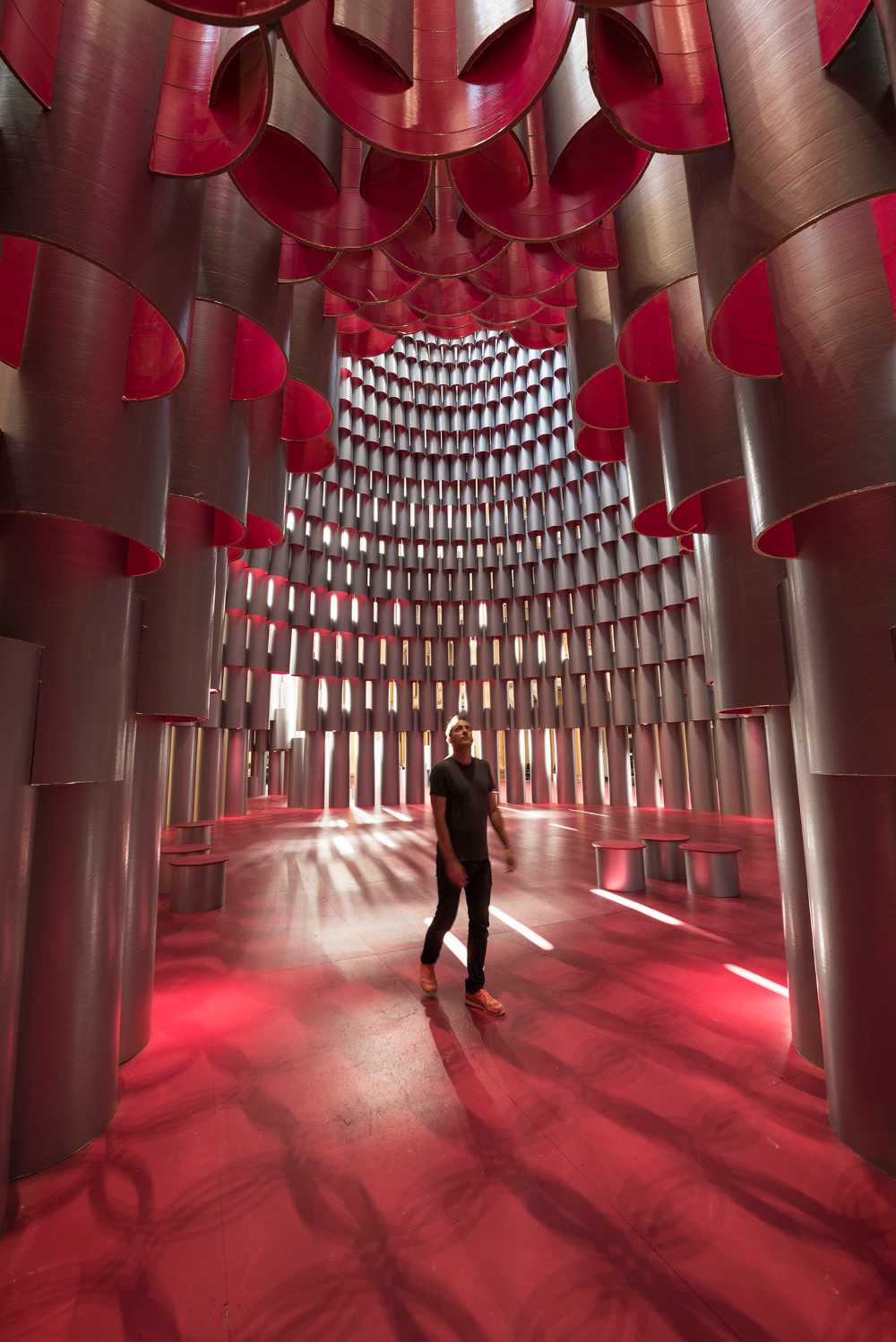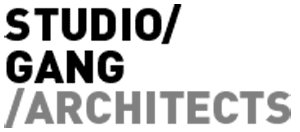The project was labeled "Hive," and was built within the Museum's historic Great Hall, complemented by a full program of concerts, tours and conferences. It was completely built with over 2,700 tubes of paper, a recyclable, lightweight and renewable building material. The tubes ranged in size from several inches to 10 feet in height and were merged to create three dynamic interconnected dome chambers
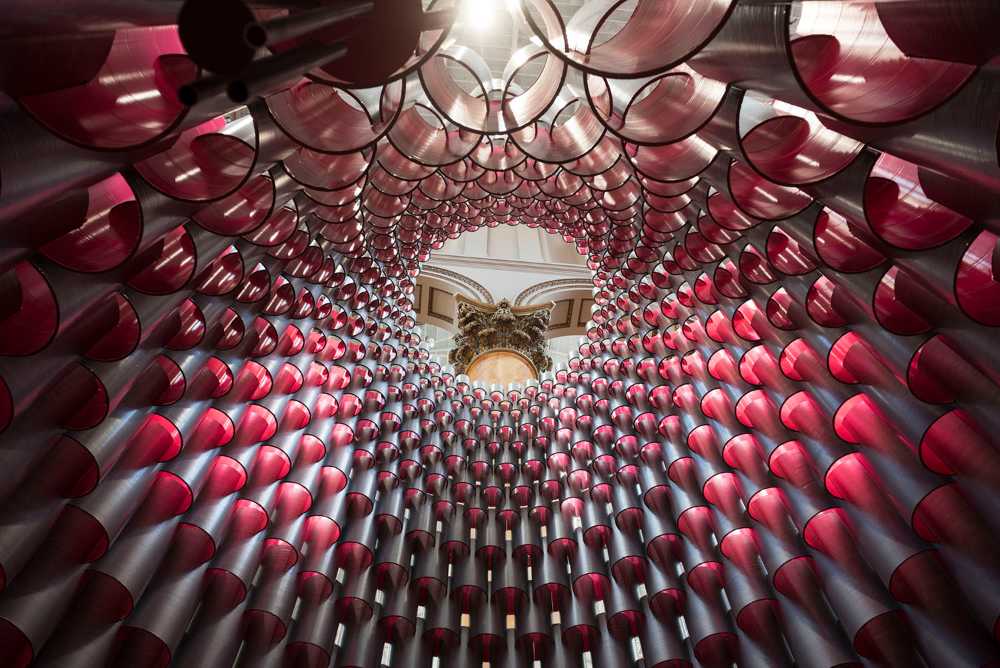

Temporary structures at the National Building Museum. Paper tubes and reflective colours
In the summer of 2017, Studio Gang designs one of the imaginative series of temporary structures that were part of the Summer Block Party event, a series of installations that saw the participation of various studies
- #United States
- #America
- #Exhibition / Temporary Installation
- #Building
- #Acoustic
- #Architectures
- #Technological innovation
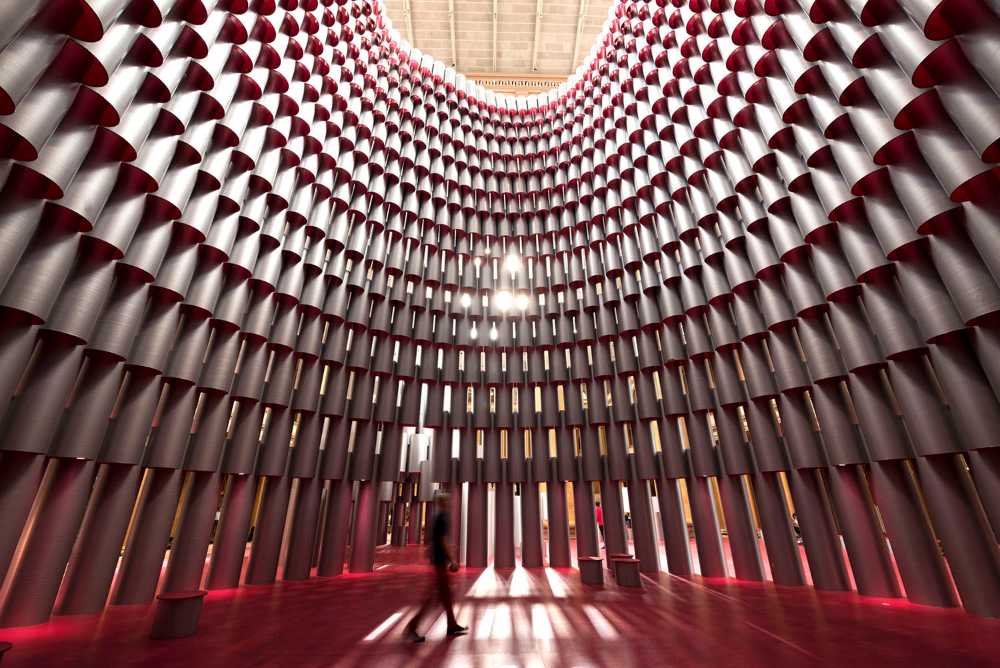
The highest dome of the installation stood at a height of 60 feet with a diameter of 10. The tubes had a silver reflective exterior and bright magenta-coloured interiors, creating a spectacular visual contrast with the 19th century columns

The shape of Hive is similar to other built and natural structures such as Saarinen's Arch Gateway in St. Louis, Brunelleschi's Dome at Florence Cathedral in Italy, Musgum's vernacular mud huts in Cameroon and the curvature of a spider's web. Using the shape of the catenary, each chamber balances the structural forces and supports its own weight, while attaining a height that ensures unique acoustics
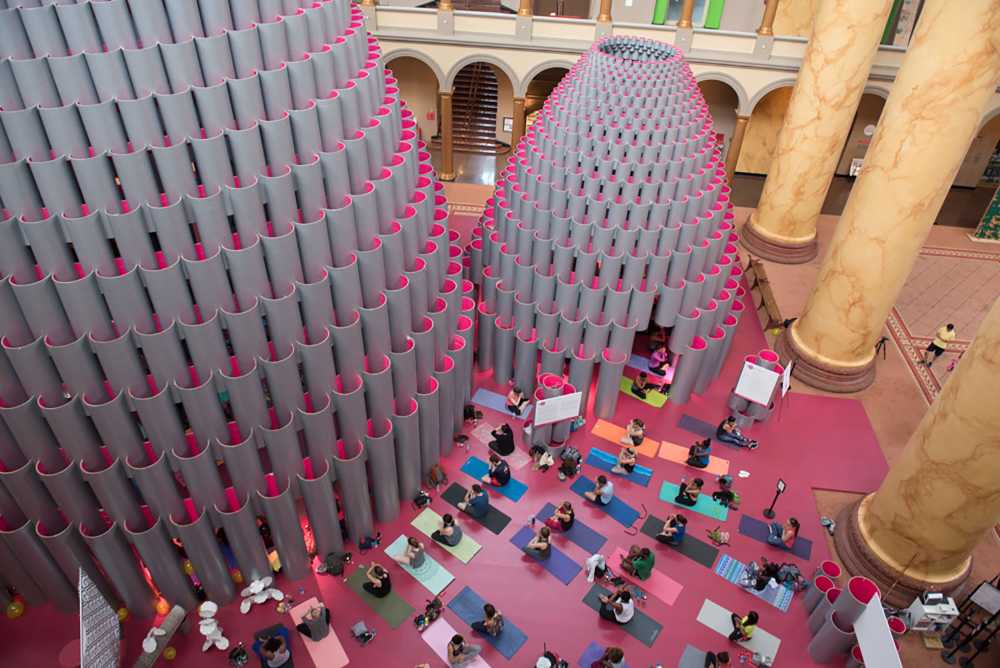
The visitors have the opportunity to explore how a structure can modify and reflect sound, light and human interaction. The smaller rooms in Hive encouraged organic and intimate encounters with tubular instruments. Each room had unique acoustic properties that influenced the tone, reverberation and reflection of the instruments, as well as the perceptions of visitors. The large main room served as a meeting point for visitors
